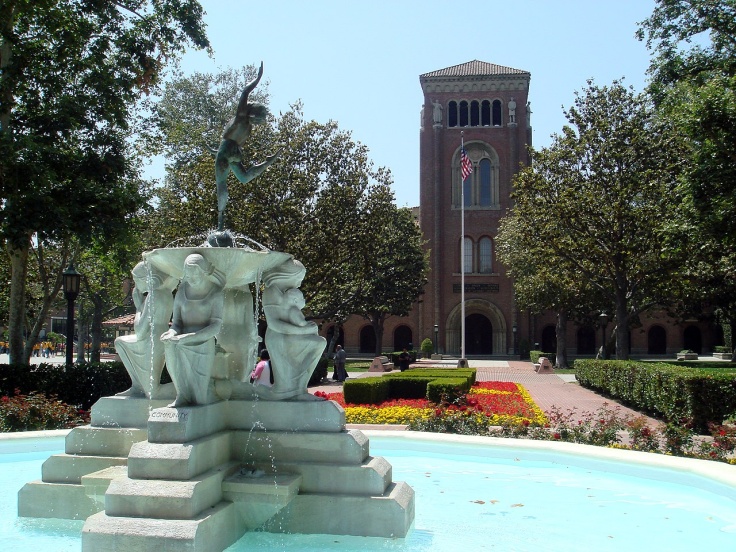USC Dismisses Harassment Case Against Tenured Professor John Strauss, Sparking Debate on Academic Freedom
ByThe University of Southern California (USC) recently made headlines by dismissing a harassment case against tenured Jewish professor John Strauss.
The case, which stemmed from an altercation with pro-Palestinian protesters last November, garnered national attention and sparked intense debate about free speech, academic freedom, and the handling of discrimination complaints. Here's a detailed examination of the incident, its aftermath, and its implications for academic discourse.

The Incident and Immediate Fallout
The controversy began during a campus protest in November, when Professor Strauss engaged in a heated discussion with students supporting Palestinians. In a moment of intense emotion, Strauss declared, "Hamas are murderers. That's all they are ... Everyone should be killed, and I hope they all are killed." This statement was captured on video, making it seem like Strauss was calling for the death of all Palestinians. The video quickly went viral, igniting outrage and leading to Strauss being temporarily barred from campus.
The edited clip, lacking context, misrepresented Strauss's statement and amplified the backlash against him. The situation escalated further when student protesters filed formal complaints of harassment and discrimination, prompting USC to launch an investigation.
READ MORE : California State Assembly Unanimously Passes Bill To Ban Legacy Preferences In College Admissions
Investigation and Decision
The investigation into Strauss's conduct was thorough, involving multiple interviews and a review of the full context of the incident. The Academic Freedom Alliance, a nonprofit faculty advocacy group, publicly supported Strauss, emphasizing the importance of protecting free speech and academic freedom. Despite the contentious nature of the case, USC maintained confidentiality throughout the investigation, declining to comment on specific details.
Ultimately, USC dismissed the complaints and closed the case, allowing Strauss to return to his academic duties without any punitive measures. In an interview with the Los Angeles Times, Strauss expressed relief and reaffirmed his commitment to free speech. "I'm relieved," he said. "As far as I'm concerned, I've been fully exonerated and they're not doing anything to punish me, and it's over."
USC's official statement on the matter highlighted the university's commitment to addressing allegations of harassment and discrimination seriously, while also maintaining the confidentiality of personnel matters.
Implications for Academic Freedom
The dismissal of the case against Strauss has significant implications for the broader academic community. It underscores the delicate balance between upholding free speech and ensuring a respectful, inclusive campus environment. This incident serves as a poignant reminder of the challenges universities face in navigating complex and often polarized issues.
Strauss's case also raises important questions about the role of social media in shaping public perception and influencing institutional decisions. The rapid spread of the edited video clip and the subsequent public outcry exemplify how digital platforms can amplify misinformation and complicate the resolution of sensitive disputes.
Moreover, the case highlights the need for universities to protect academic freedom while also providing clear guidelines and support for faculty members navigating contentious issues. Strauss's ordeal is a testament to the importance of due process and the potential dangers of rushed judgments based on incomplete or misleading information.
In the wake of the case's dismissal, Strauss expressed hope that the outcome would serve as a precedent for other institutions. "I hope this outcome will serve as a reminder to universities across the country that professors have a right to free speech both inside and outside the classroom," he stated. His words echo the sentiments of many academics who view the protection of free speech as fundamental to the mission of higher education.
The dismissal of the harassment case against Professor John Strauss by USC is a landmark decision that highlights the complexities of balancing free speech, academic freedom, and the need for a respectful campus environment. As universities continue to grapple with these issues, the Strauss case will undoubtedly serve as a crucial reference point for policymakers, educators, and students alike. It underscores the importance of context, due process, and the protection of fundamental rights in the academic sphere, setting a precedent for future cases involving controversial speech and the role of social media in shaping public discourse.
© 2025 University Herald, All rights reserved. Do not reproduce without permission.








